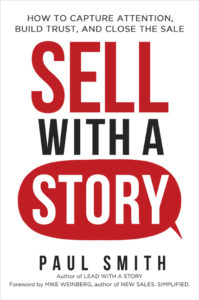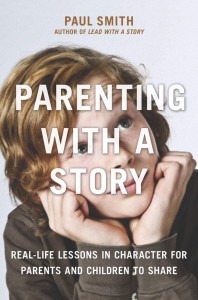Podcast: Play in new window | Download | Embed
Subscribe: RSS
Podcast (parenting-with-a-story-podcast-series): Play in new window | Download | Embed
Subscribe: RSS
 Thomas Paine once observed, “That which we obtain too easily, we esteem too lightly.”
Thomas Paine once observed, “That which we obtain too easily, we esteem too lightly.”
If true, that might suggest that something we obtain for free we don’t esteem at all. But so what? Does it really matter if we esteem something too lightly?
One person who knows something about that is John Chancellor.
Paying for the Psychiatrist
A few years ago, a psychiatrist friend of John’s borrowed some money from him and was having difficulty paying it back. At the same time, another friend of John’s was struggling with a different problem, the kind that might benefit from the help of a psychiatrist.
So John suggested what seemed like a great solution. He asked his psychiatrist friend if he would take his other friend as a patient, but instead of charging him, simply take it as credit against the amount he owed John. The psychiatrist gets his debt reduced, a troubled man gets the counseling he needs, and John gets the satisfaction of knowing he’s helped both his friends. It was a brilliant idea, except for one thing: The psychiatrist refused to do it.
John was surprised, as you might imagine, and even a bit angry.
Let me understand this,” he scoffed. “You owe me a fair bit of money. My friend needs help. But you won’t help my friend and offset that against what you owe me?”
The psychiatrist looked John straight in the eye and said, “Yes, you’re correct. I understand and agree that I owe you. I also understand about your friend, and from what you have told me, I think I could be of real help. However, I refuse to take your friend as a patient on that basis.”
“Why?” John asked.
For the very simple reason that I never want to enter into a relationship with a patient when I know it’s doomed to fail.”
He explained, “when a patient comes to me, he has to be hurting enough that he’s willing to do something about it. If the pain is enough, he’ll make sacrifices; he will do whatever it takes to relieve the pain. But if it’s too easy for him, he won’t benefit. In this case, if he doesn’t pay, the patient won’t value the service and as a result won’t do what it takes to benefit from it.”
What he meant, of course, is that in his experience, patients who don’t pay for his services are unlikely to follow his advice or take whatever medications he prescribes. In this case, the psychiatrist would get his debt reduced. But his patient would be no better off. And that didn’t seem to be a fair arrangement.
John’s anger started to melt away as the wisdom of these words sank in. We tend to value things based on what we have to give up to obtain them. If something comes too easy, if the cost is too low, we place little or no value on it.
The lesson
John’s conclusion from this for parents struggling with the decision to help their children through every little problem was this: “Don’t rob children of the benefits that come from solving their own problems by trying to solve their problems for them.” It also helps make a strong case for not buying them every little thing their heart desires.
And for the children, this story may help them understand why we can’t (and shouldn’t) always come to their rescue or satisfy their every whim.
As with all of these stories, I encourage you to share this with your kids, and then have a discussion about it. Here are some questions to get you started.
- Do you think the psychiatrist was justified in refusing to take John’s friend as a patient
- What does the saying “That which we obtain too easily, we esteem too lightly” mean to you?
- Do you have any toys or clothes or a car that you had to work hard to earn the money to buy? How well do you take care of that item compared to things your parents gave you for free?
- Can you think of some things that you don’t have to work for that
are extremely valuable to you?
Use these links to subscribe to this podcast on iTunes or Stitcher, or Podbean.
Source: Parenting with a Story: Real-life Lessons in Character for Parents and Children to Share, by Paul Smith.
—
 Paul Smith is one of the world’s leading experts on business storytelling. He’s a keynote speaker, storytelling coach, and bestselling author of the books Lead with a Story, Parenting with a Story, and Sell with a Story.
Paul Smith is one of the world’s leading experts on business storytelling. He’s a keynote speaker, storytelling coach, and bestselling author of the books Lead with a Story, Parenting with a Story, and Sell with a Story.


 Connect with him via email here.
Connect with him via email here.
Follow him on Facebook, LinkedIn, Twitter, and Instagram.
Sign up for his newsletter here to get one new story a week delivered to your inbox.

